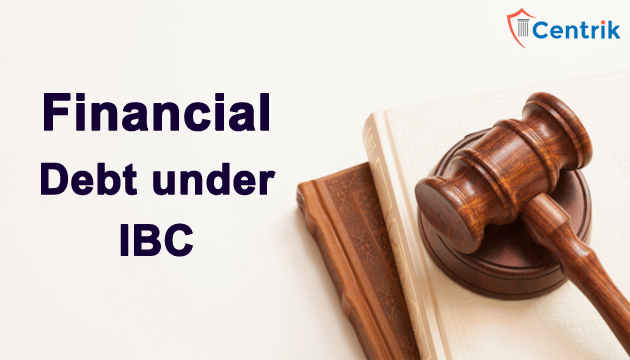
Status as on: 10/02/2021
The three-judge bench of Supreme Court has held that collusive or sham commercial transactions with corporate debtor will not amount ‘financial debt’ under Section 5(8) of the Insolvency and Bankruptcy Code, 2016 (IBC).
Facts:
- The Appeal was filed before the Hon’ble Supreme Court by the entities AAA and Spade challenging the orders of the NCLAT and NCLT which excluded both entities from the Committee of Creditors (CoC) formed for the insolvency resolution of a corporate debtor.
- The NCLT (National Company Law Tribunal) had held that the entities were financial creditors giving the different reason that their transactions with the corporate debtor were sham or collusive (fake) in nature.
- Aggrieved by the order of the NCLT, above-mentioned entities approached the NCLAT. The NCLAT in January 2020 had held that the entities were financial creditors but disqualified them from the CoC on the ground that they were related parties of the corporate debtor.
Judgment:
The Supreme Court while passing the judgment noted the following important points:
- “A transaction which is sham or collusive would only create an illusion that money has been disbursed to a borrower with the object of receiving consideration in the form of time value of money, when in fact the parties have entered into the transaction with a different or an ulterior motive.” observed Court. Meaning that the entities and the Corporate Debtor had entered into multiple agreements regarding the same property without giving any explanation or reason for variance which clearly shows that the transactions were collusive in nature.
- The Court noted that the AAA and Spade are related parties and fall under the definition of “related parties” under Section 5(24) of the Insolvency and Bankruptcy Code, 2016
- The Court also held that a financial creditor which is not a “related party” to the corporate debtor at present can also be excluded from the Committee of Creditors (CoC) if it is found that its removal of the “related party” label was a party of strategy to escape the bar under Section 21(2) first proviso of the IBC.
Conclusion:
The Supreme Court has given a perfect decision where the parties perform activities to avoid any commercial transactions which are collusive in nature or where financial creditor escape the bar under Section 21(2) first proviso of the IBC.
Case details:
Case: Phoenix Arc Pvt. Ltd. vs. Spade Financial Services Ltd. (Civil Appeal No. 2842 of 2020)
Coram: Justices DY Chandrachud, Indu Malhotra and Indira Banerjee
Disclaimer – The above article is based on the personal interpretation of the related orders and laws. The readers are expected to take expert opinion before relying upon the article. For more information, please contact us at rera@centrik.in




 join For Updates
join For Updates